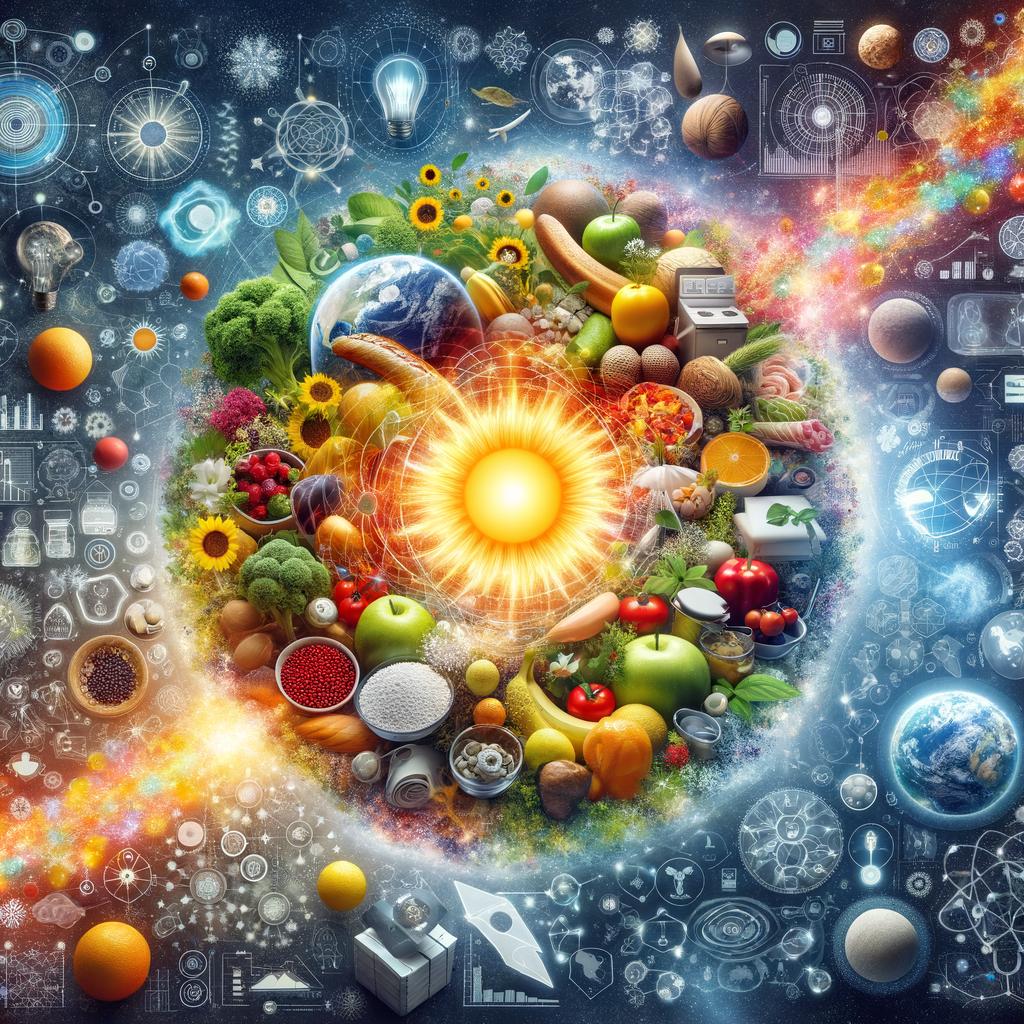Introduction: The Powerhouse of Your Meal Plan
Have you ever wondered, “What is the main source of energy in the human diet?” This pivotal question blends the borders of biology and culinary arts. Simply put, carbohydrates serve as the core energy source in our diet. They work as body fuel, offering us the vigor required to perform daily activities. But as with any tale around the merry campfire of nutrition and well-being, there’s always more to the story. This article will tread deeper into the maze of macro and micronutrients, and explore how natural resources become the powerhouses of human machinery.
What Is The Main Source Of Energy In The Human Diet?
The main source of energy in the human diet comes from carbohydrates, which include sugars, starches, and fiber found in fruits, vegetables, grains, and legumes. Carbohydrates are metabolized into glucose, the body’s preferred energy source, fueling brain function, physical activity, and various metabolic processes.
The Macro Monarchs: Carbohydrates, Proteins, Fats
Carbohydrates undoubtedly take up the scepter as the predominant source of dietary energy for humans. Every vegetable you munch, every bread slice you savor, and every pasta dish you relish offer you carbohydrates. They promptly convert to glucose, the legitimate currency your body uses to trade for energy. However, the nutritional kingdom doesn’t reside under a single rule.
Proteins and Fats: The Trusted Lieutenants
Proteins and fats also play significant roles. They ensure our body’s smooth reign, keeping a balanced check on energy reserves. As reliable lieutenants, they keep reserve energy in storage for the body to utilize when carbs are scarce.
Behind the Scenes: Micronutrients
While carbohydrates receive the crown and earn most of the limelight, let’s not overlook the unsung heroes – the lore of the micronutrients – vitamins and minerals. They sure don’t provide energy but are instrumental in facilitating the energy conversion process.
The Micronutrient Maestros
Think of these micronutrient maestros as the mysterious mentors behind the scenes, guiding the conversion of carbs, proteins, and fats to energy. Without them, the absorption and digestion of our beloved macros would be, quite literally, a tough nut to crack.
The Power of Variety: Dietary Diversity
So far, carbohydrates, proteins, fats, vitamins, and minerals paint a vivid palette of nutrition. They work in magical harmony but bear in mind that variety is the zest of life – and diet!
Reaping Rainbow Rewards
Incorporating a colorful variety of fruits, vegetables, legumes, and lean proteins can provide a wide spectrum of nutrients. This dietary diversity serves as a grab-bag of health benefits, making every meal a delightful fiesta of flavors and nutrition.
Conclusion: Harmony in Health
In a nutshell, carbohydrates lead the charge, serving as the main energy source in our diet. However, lean proteins and healthy fats play their parts, providing crucial backup, while vitamins and minerals work backstage, orchestrating the entire process. By embracing a variety of foods, you can ensure an exquisite symphony of nutrients that promise a happy, healthy body.
Frequently Asked Questions: Nutritional Nuggets
1. Are all carbohydrates equal in energy supply?
No, not all carbohydrates are created equal. Simple carbohydrates from refined foods provide instant energy but lack nutritional value. Complex carbs from whole foods burn slowly, providing sustained energy and are packed with other nutrients.
2. Can our body use protein and fats as energy sources?
Yes, in the absence of carbohydrates or during prolonged physical activity, our body can turn to protein and fats for energy, although this is not its preferred method.
3. How do vitamins and minerals help in energy production?
Vitamins and minerals facilitate chemical reactions in the body that convert macronutrients into useful energy.
4. What foods provide the highest energy?
Foods high in complex carbs like whole grains, fruits, vegetables, and legumes provide the highest, most sustainable energy
5. Is it possible to consume too many carbs?
Yes, overconsumption of carbs, especially simple carbs, can lead to weight gain and related health issues. Balance is key in a healthy diet.



